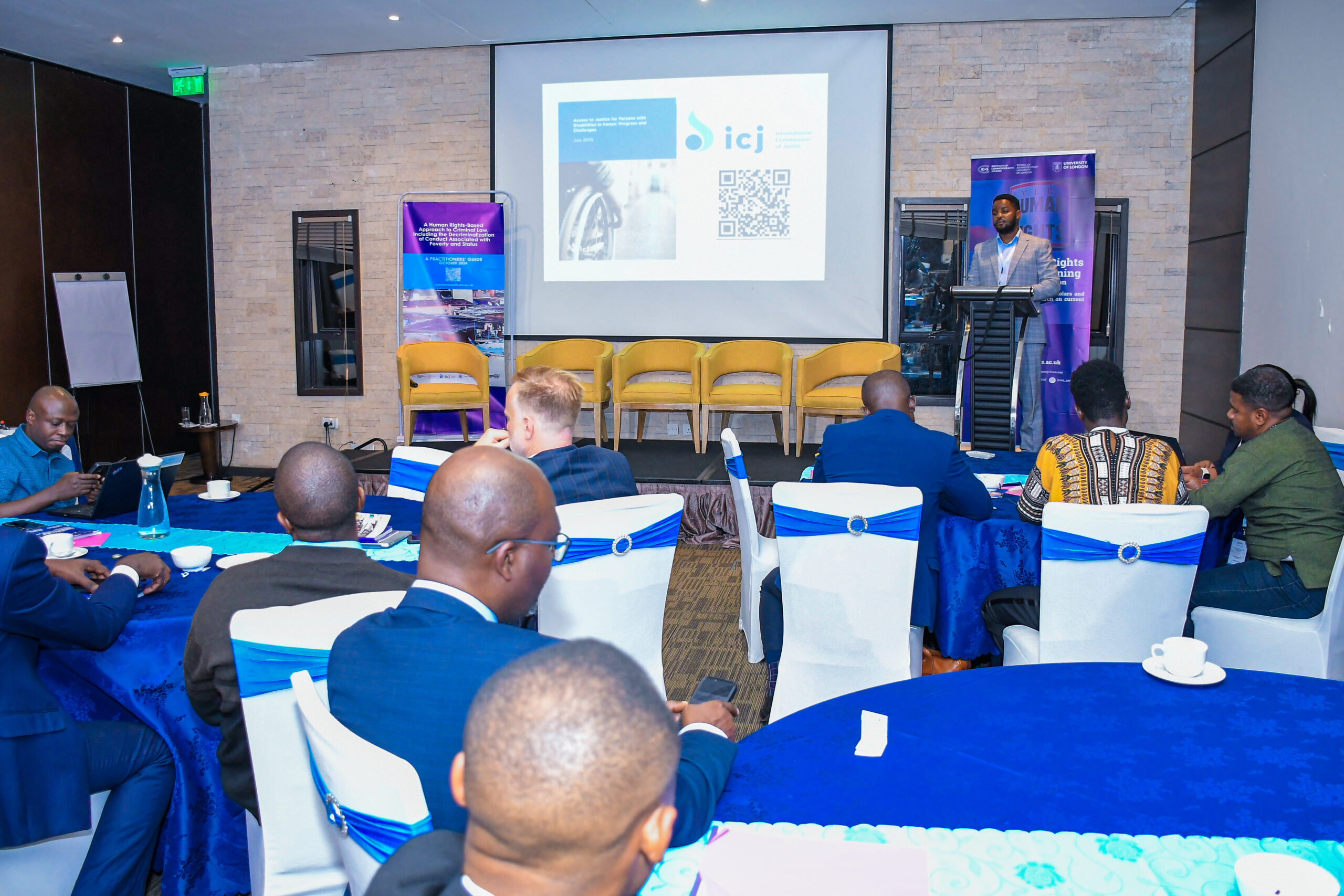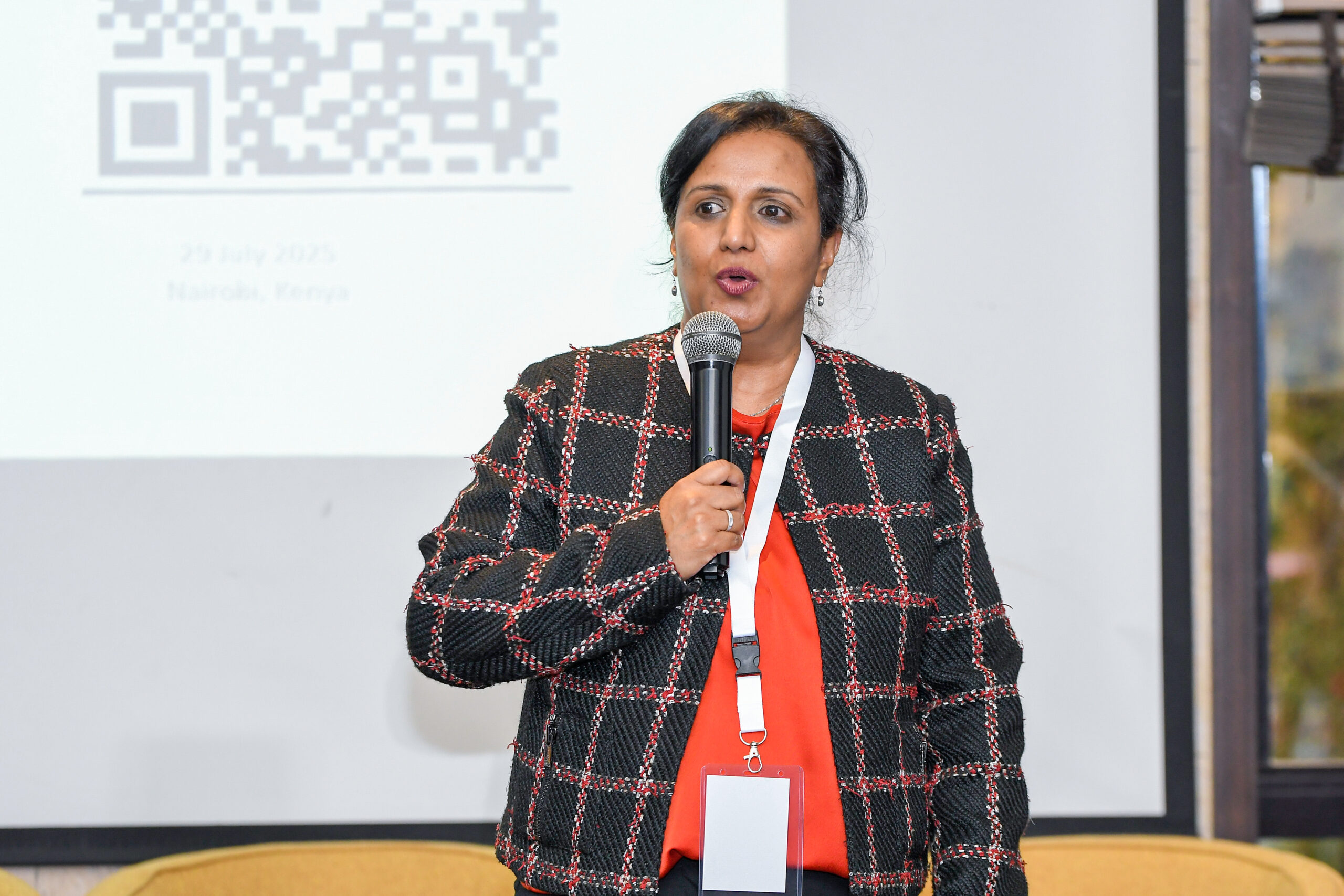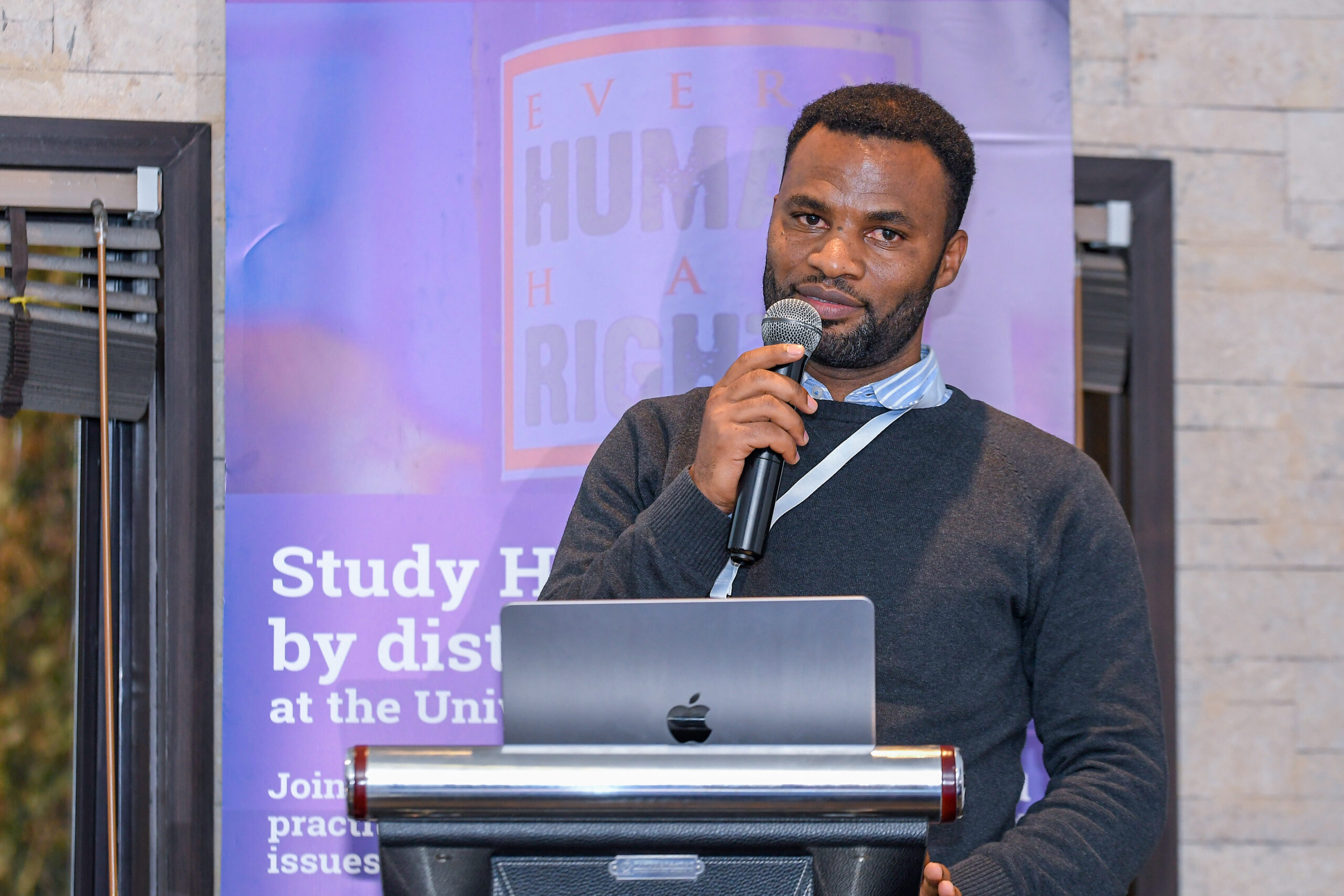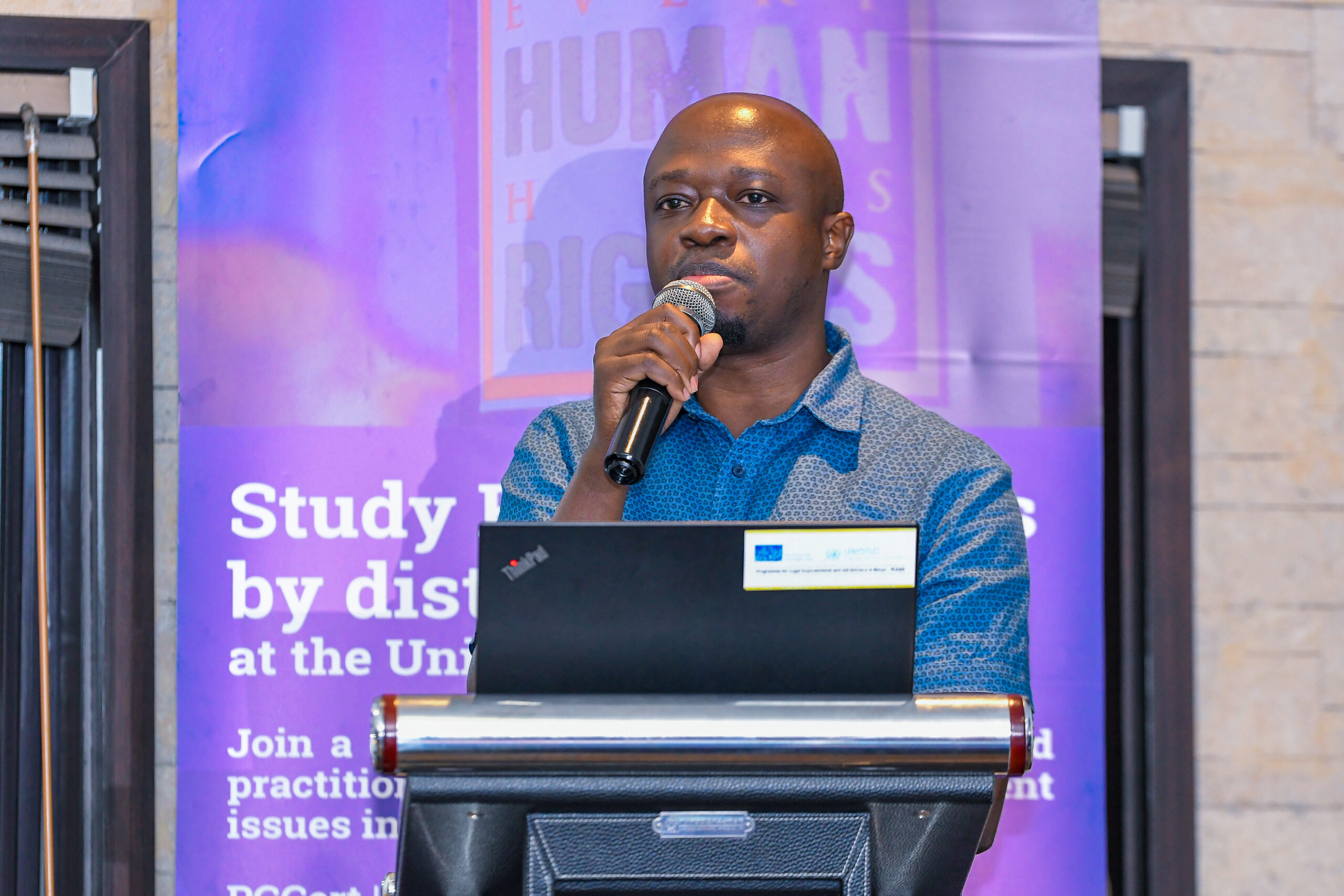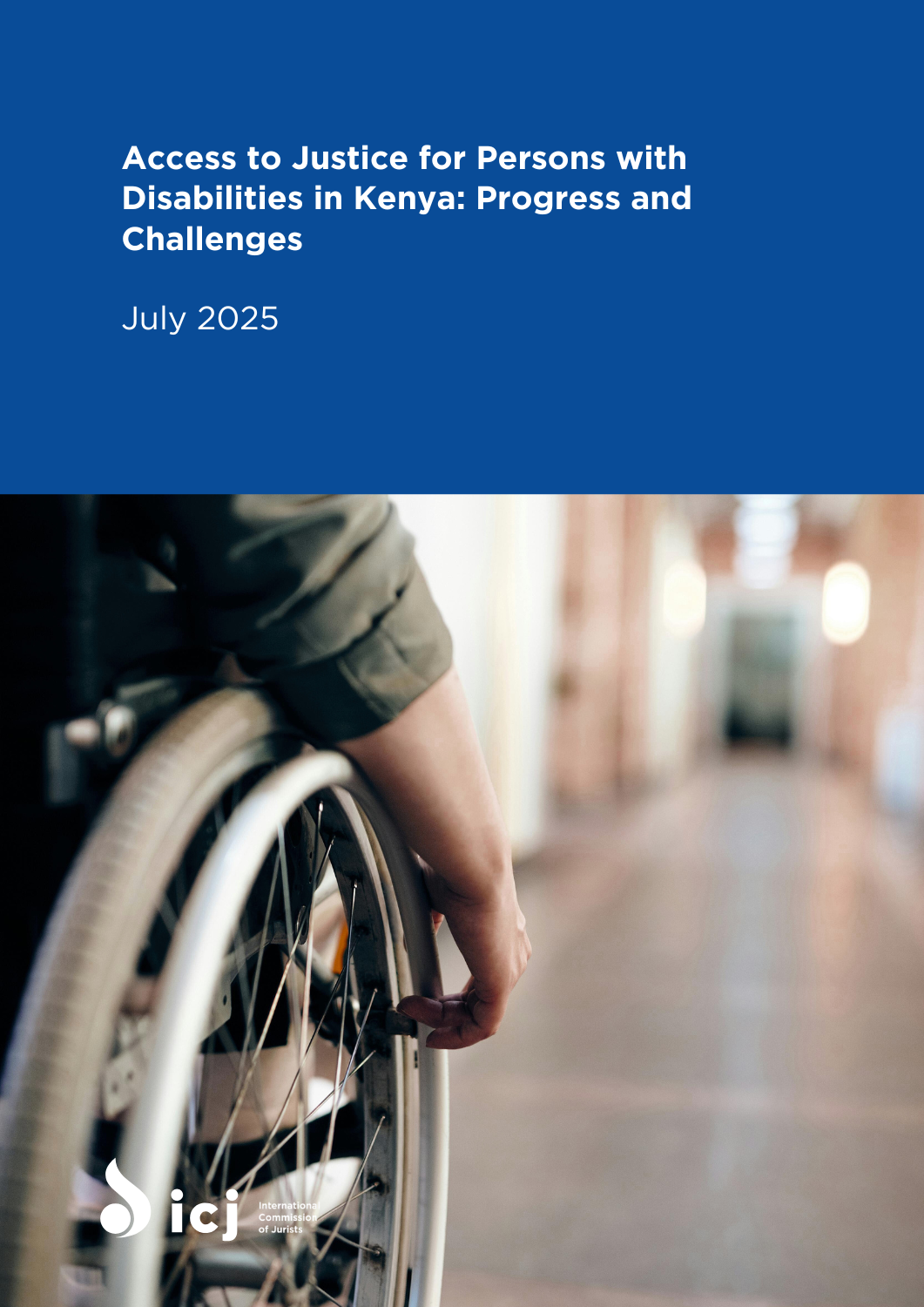The International Commission of Jurists (ICJ) has issued a report entitled “Access to Justice for Persons with Disabilities in Kenya: Progress and Challenges”, highlighting progress and persistent gaps and deficiencies in the legal and institutional landscape in Kenya that is supposed to guarantee access to justice for persons with disabilities.
Over the past decade, Kenya has made significant strides in enhancing the rights of persons with disabilities. The 2010 Constitution establishes a solid foundation by guaranteeing the right to equality and non-discrimination, including on the basis of disability, and contains a standalone provision on the protection of the rights of persons with disabilities. These legal protections were further strengthened with the recent enactment of the Persons with Disabilities Act (2025), which specifically recognizes the right to legal capacity and the right to access to justice for persons with disabilities, including through procedural and age-appropriate accommodations in all judicial proceedings.
“The long-awaited enactment of the Persons with Disabilities Act clarifies once again the legal obligations of the Kenyan authorities to ensure access to justice for persons with disabilities in the country. However, as ICJ’s report reveals, the mere enactment of this law alone is not enough to prevent on-going challenges for persons with disabilities in their access to justice on an equal basis with all others. Now is the time for the Kenyan authorities to take stock of major gaps and expeditiously undertake the legal reforms necessary to protect the rights of persons with disabilities,” stated Kaajal Ramjathan-Keogh, ICJ’s Africa Director.
Despite the legislative advances made, the report reveals that outdated and discriminatory legal provisions — particularly certain sections in the Criminal Procedure Code (CPC), Penal Code, and Civil Procedure Act — continue to undermine the legal capacity and legal standing of persons with intellectual and/or psychosocial disabilities. In particular, Sections 162-167 of the CPC authorize courts to declare individuals with intellectual and/or psychosocial disabilities “of unsound mind”, stripping them of their right to defend themselves and subjecting them to indefinite detention “at the President’s pleasure”. Similar provisions in the Civil Procedure Act impose substituted decision-making regimes, allowing court-appointed guardians or “next of friend” to act purportedly on behalf of persons with intellectual and/or psychosocial disabilities, thereby denying them the right to participate in civil proceedings on an equal basis with others.
The report highlights that these and other provisions and practices violate Kenya’s Constitution and its international human rights obligations under the UN Convention on the Rights of Persons with Disabilities (CRPD) and the Protocol to the African Charter on Human and Peoples’ rights on the Rights of Persons with Disabilities in Africa (ADP). The report also analyzes a number of judgments of Kenya’s Courts, finding that they do not fully or consistently apply international human rights law and standards.
“Despite commendable efforts by Kenyan courts to challenge the constitutionality of the discriminatory CPC provisions, the jurisprudence remains fragmented and inconsistent. As a result, judicial officers continue to apply certain legal provisions in such a manner that denies the legal capacity and equal standing before the law of persons with disabilities. In the case of the CPC, this is so despite that fact that some courts have declared the relevant provisions unconstitutional.” said Wilson Macharia, Legal Advisor at the ICJ.
The report, published alongside a summary, makes a detail set of recommendations to the Kenyan authorities, including the legislature, the executive and the judiciary. Among other things, the report makes the following recommendations:
- Parliament should urgently amend Sections 162-167 of the CPC and certain discriminatory provisions in the Penal Code and Civil Procedure Act to ensure their compliance with the Constitution, the CRPD and ADP.
- The Executive should take all necessary steps to ensure the full accessibility of court infrastructure and allocate adequate resources for the provision of procedural accommodations for persons with disabilities, including intermediary services and sign language interpretation.
- The Judiciary, and specifically the Chief Justice, should fast-track the adoption of Judicial Rules under Section 28(3) of the Persons with Disabilities Act (2025). These Rules are critical to standardizing procedural accommodations across all court proceedings and ensuring the effective participation of persons with disabilities in all judicial proceedings.
Background
Kenya ratified the CRPD in 2008 and the ADP in 2021. Since then, the country has undertaken significant legal reforms to ensure that its laws comply with its international human rights law obligations. However, as the report highlights, these reforms remain limited, especially in ensuring that persons with intellectual and/or psychosocial disabilities can fully participate in all judicial proceedings with necessary support and accommodations.
Some of the key findings include that:
- The Kenyan Penal Code and Criminal Procedure Code substantially restrict access to justice for persons with intellectual and/or psychosocial disabilities, especially by allowing declaring defendants or accused persons with intellectual and/or psychosocial disabilities as either incapable of defending themselves against the criminal charges they face or altogether unfit to stand trial;
- Courts have decided cases on the constitutionality and continued application of certain provisions of the CPC in a confusing and inconsistent manner. Notably, in their decisions the courts have not, as yet, fully examined the compliance of such provisions with international law, especially the CRPD and ADP;
- Under the Civil Procedure Act and Civil Procedure Rules, persons with intellectual and/or psychosocial disabilities are being denied the right to legal capacity through substituted decision-making frameworks, hindering or denying altogether their access to justice;
- While new court buildings are, in general, built and equipped in an accessible manner, many old buildings remain inaccessible to persons with physical disabilities;
- Reasonable and procedural accommodations for persons with disabilities, such as the free provision of intermediaries, sign language interpretation or legal aid, are still insufficient in law and practice;
- The use and availability of intermediaries, whose role has been recognized by the Kenyan legal system, is still inconsistent and suffers from a lack of standardized procedures, training and accreditation frameworks for intermediaries; and
- Court rules on access to justice for persons with disabilities need to be adopted by the Chief Justice pursuant to the Persons with Disabilities Act and timely action is required after a lack of initiative in the past.
Download
The full report “Access to Justice for Persons with Disabilities in Kenya: Progress and Barriers” is available here.
A summary of the report is available here.
Contact
Marishet Hamza, Disability Rights Consultant, ICJ Africa Regional Programme, e: marishet.hamza@icj.org
